The Curator independently decides what topics and products we feature. When you purchase an item through our links, we may earn a commission. Promotions and products are subject to availability and retailer terms.
Is there anything better than walking outside to your yard or balcony and picking fresh lettuce, tomatoes, peppers or basil? There’s something about growing your own produce that makes you feel accomplished, plus it always seems to taste better.

The great news is that anyone can create their own veggie or herb garden with a few pots and a little know-how. Read on to learn how to curate the perfect container garden this summer.
Grab the right containers
When you’re choosing a container for your veggies, it can be tempting to grab the prettiest pot and throw some seeds in. If you’re looking for success, though, it’s important to consider other factors. You must select the proper type and container size and ensure it offers adequate drainage.
Typically, terra cotta pots are the best for growing produce because they’re glazed and won’t leach moisture from your soil. However, you can also grab smart pots or grow bags, which are specifically designed to grow veggies while minimizing the amount of water you’ll need. You could also use hanging baskets lined with moss for herbs or lettuce, but make sure you water them daily.
As for size, consider what you’re planting and how much. Things like leaf lettuce and beans can grow in smaller pots, while tomatoes and cucumbers require more room. Read up on how much room your desired produce needs, and when in doubt, always go bigger.
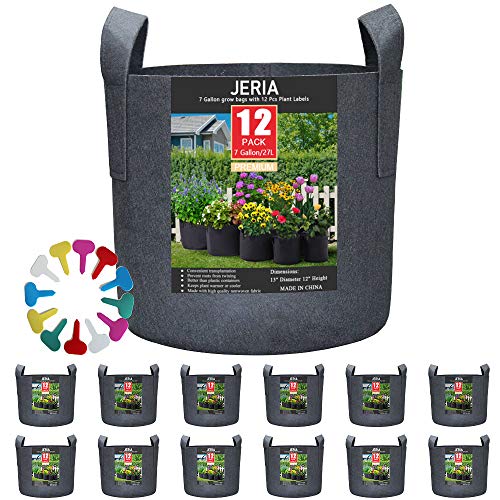
These basic black grow bags fit any outdoor (or indoor!) décor and are great for growing veggies, herbs or plants.
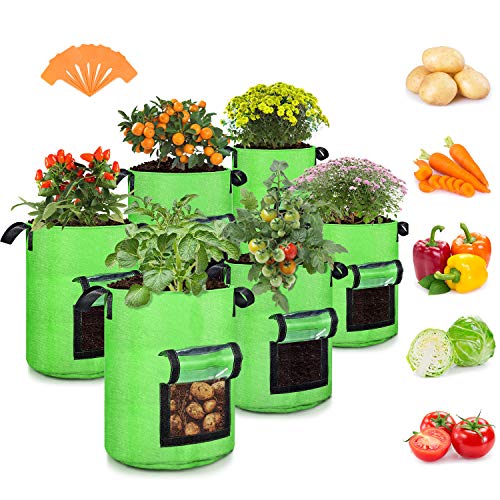
If you’re growing potatoes or any other plant where you want to keep an eye on the roots and overall progress, these grow bags come with a see-through flap.
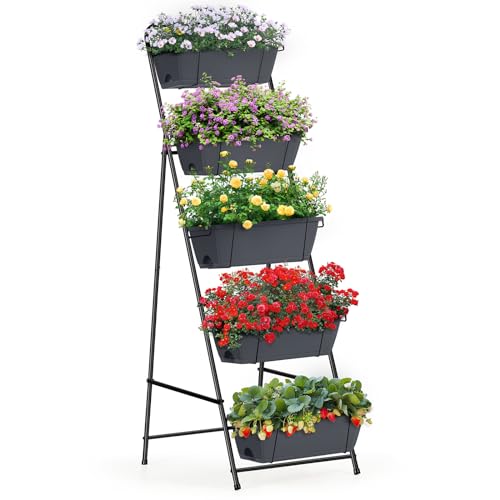
Plant more while saving space with a stacked planter. These are ideal for herbs, lettuce and flowers.
Invest in decent soil
Soil gives your veggies and herbs the nutrients they need to grow, so don’t just grab any soil. Pot mixes that include perlite or vermiculite can help improve drainage, which is important in avoiding root rot. You’ll want to find soil with a neutral pH (between 6.0 and 7.0), and you should also consider an organic mix that’s free of synthetic fertilizers and chemicals. After all, you plan on eating what you grow!
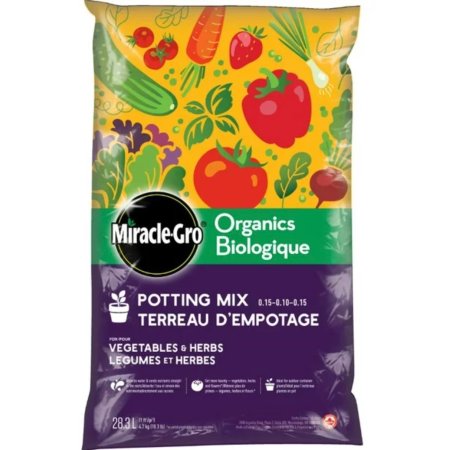
This eco-certified mix contains organic and natural ingredients specifically designed to help vegetable and herb plants absorb water and nutrients.
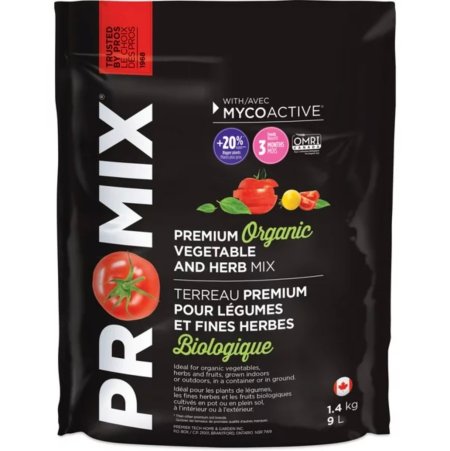
This mix is designed for potted vegetable growth with something called MYCOACTIVE technology, which promotes good root development and water and nutrient intake.
Pick the perfect spot
When growing potted veggies, ensure your pots receive at least six daily hours of sun. You can also move pots around (and inside, if necessary) to give them a better climate. Remember that pots on pavement may heat up from the bottom and require more watering. Meanwhile, plants placed near a wall may retain heat for longer than those placed in less protected areas of the balcony or yard.
If you plant a vegetable that grows upwards and needs support, like cucumbers or tomatoes, placing pots near a wall may help. However, investing in a pot trellis or cage is necessary to provide extra support.
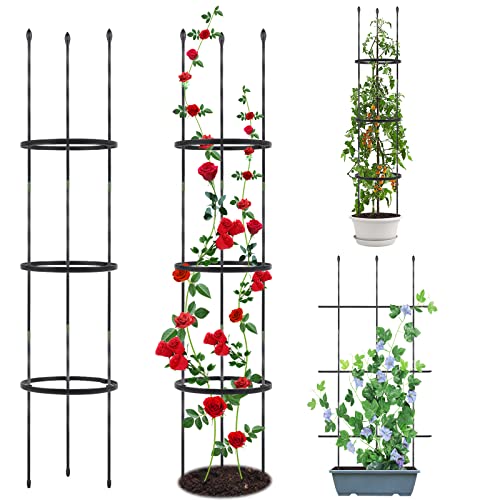
These plant cages are specifically designed for vertical climbers, and they’re adjustable to fit your exact pot.
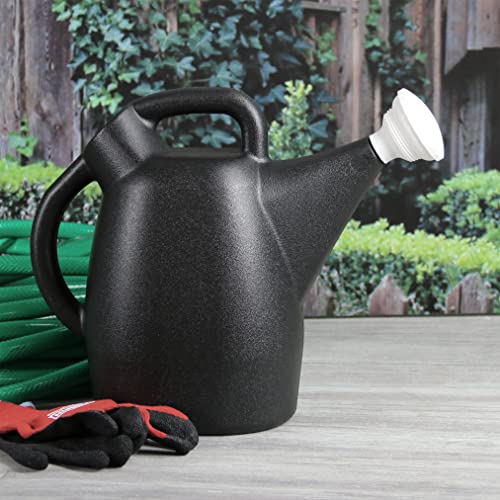
Need a watering can? This highly reviewed plastic can is made from recycled materials and includes a removable nozzle for customized watering at each pot.
Don’t forget to feed them
Remembering to water your potential harvest is very important. When growing plants dry up, they die — fast. It’s also essential to feed veggies like peppers and tomatoes extra nutrients as they grow to remain solid and sturdy. There are many water-soluble plant foods and granules out there; follow the directions on the label to keep your plants healthy and happy.
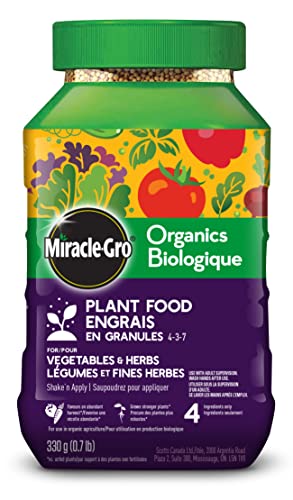
This is the perfect plant food for any veggies or herbs you’re growing, as it only contains organic and natural ingredients. Shake it over your soil and you’re good to go.
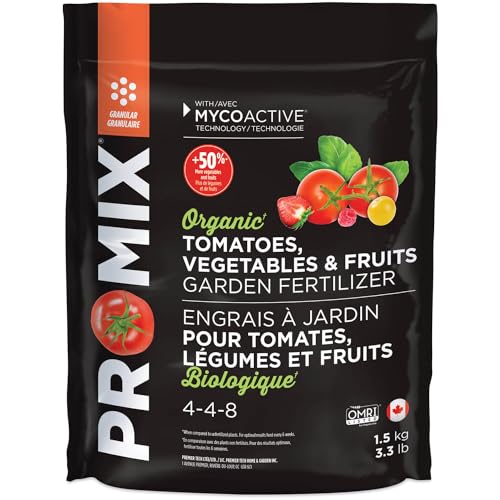
This potassium-heavy soil booster is designed to give produce that extra boost of nutrients throughout all growth stages.
Harvest and save your hard work
When you’re growing vegetables and herbs, the last thing you want to do is ignore the produce when it’s ready to be picked. Doing so means your fresh vine tomato may be a cracked mess tomorrow, or your juicy bean will be tough and bitter.
If you’re not ready to eat what you’ve grown, pick it anyway and then try to preserve it. You can pop fresh herbs in an ice cube tray, cover with olive oil and freeze. Then, pop them out when you’re cooking. Or, if you have greens, wash them, wrap them with paper towels, and then store them in the fridge in a container.
Have too many tomatoes on your hands? Consider roasting them on low heat in the oven and making sundried tomatoes for sauces and salads. Or whip up some fresh marinara and freeze it in freezer-proof bags or jars. Too many jalapenos, beans, onions, carrots or cucumbers? Pickling is always a brilliant way to go.
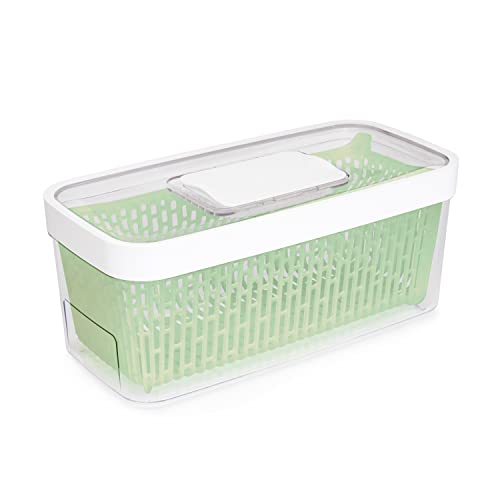
These containers are BPA-free and include an elevated basket to maximize airflow. They also include a carbon filter to absorb ethylene gas and keep food fresh for longer.
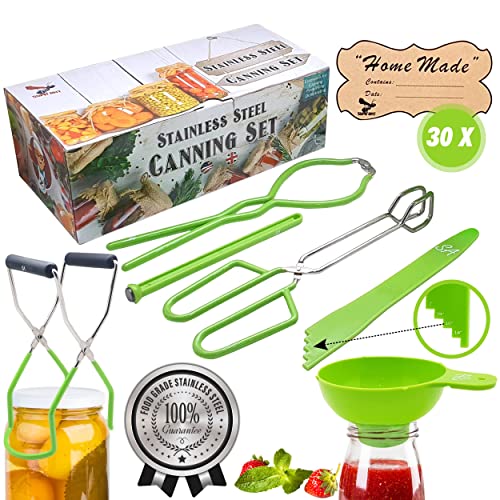
Now that you’ve got your own harvest, you may as well get into canning and pickling. This set includes everything you need to get started.
© 2024 Global News, a division of Corus Entertainment Inc.



